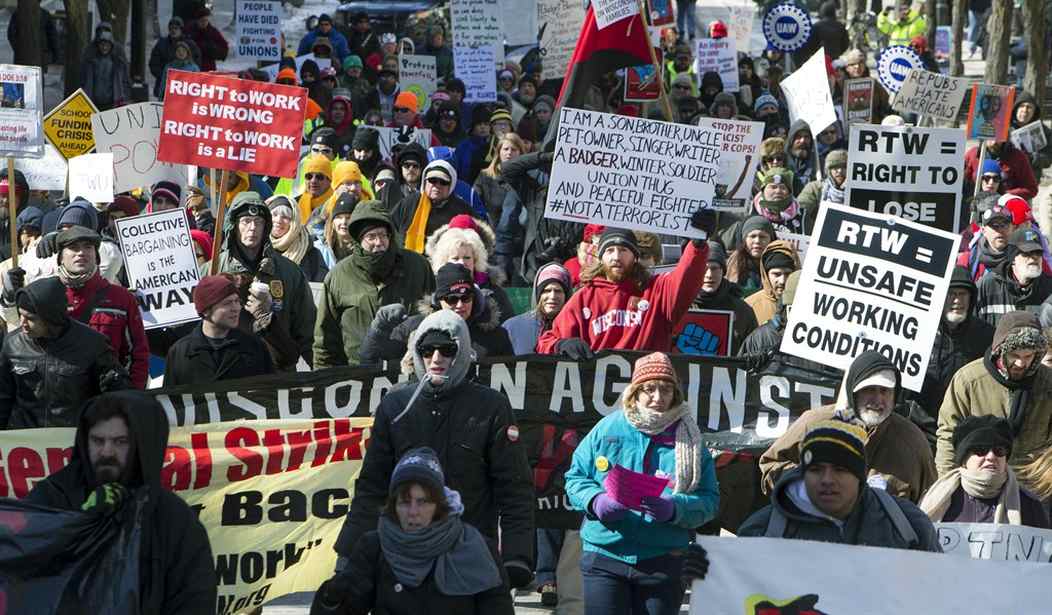A ruling in the teachers’ favor would have affected millions of government workers and weakened public-sector unions, which stood to lose fees from both workers who objected to the positions the unions take and those who simply chose not to join while benefiting from the unions’ efforts on their behalf.Under California law, public employees who choose not to join unions must pay a “fair share service fee,” also known as an “agency fee,” typically equivalent to members’ dues. The fees, the law says, are meant to pay for collective bargaining activities, including “the cost of lobbying activities.” More than 20 states have similar laws.
Lyle Denniston noted that even though public sector unions scored a victory today, the fight isn’t over. At the same time, we might have to wait a bit for the Friedrichs case to be reheard (via
The practical effect was to leave undisturbed a ruling by the U.S. Court of Appeals for the Ninth Circuit, which had simply found itself bound by a prior Supreme Court precedent upholding such fees against constitutional challenge. The Ninth Circuit had before it a case specifically filed as a test of that precedent, and only the Supreme Court could revisit that prior ruling, binding on all lower courts.The Court had heard the Friedrichs case on January 11 and, from all appearances then, it seemed to be on its way toward a five-to-four decision to declare that it would be unconstitutional for unions representing government employees to charge fees to workers they represent but who are not among its members, even when the fees cover the costs of normal union bargaining over working conditions, not lobbying or outright political advocacy.
[…]
Under the Court’s rules, a rehearing request in the Friedrichs case would have to be filed within twenty-five days following Tuesday’s ruling. It would require the votes of five Justices to order such a reconsideration, and one of the five must have been one who had joined in the decision. It is unclear how that rule would work when the judgment had been reached by an evenly divided Court.
Tuesday’s result in this key case marked the second time that the Court, with its membership reduced by one, had divided evenly in a case it had reviewed.
[…]
If the Court were to decide not to rehear the Friedrichs case, another option for confronting the same agency fee question would be in a different case that had worked its way through lower courts, and reached the Justices after there was a full bench.
Recommended
Nevertheless, this case, and others to follow, underscores the importance of this election and the swearing in of the next Supreme Court justice, according to the Judicial Crisis Network’s Carrie Severino.
“The Court's 4-4 decision demonstrates just how much rides on the next justice confirmed to the Supreme Court. If the Senate confirms Merrick Garland to the Supreme Court, it will be creating a new liberal majority that will dominate the court's decisions for a generation. The Senate should hold the line on letting the people decide what kind of court they want.”

























Join the conversation as a VIP Member